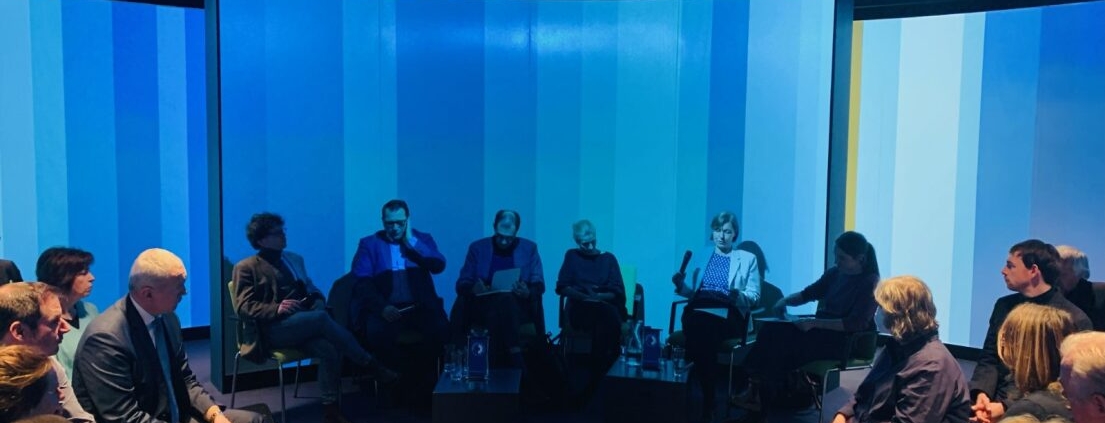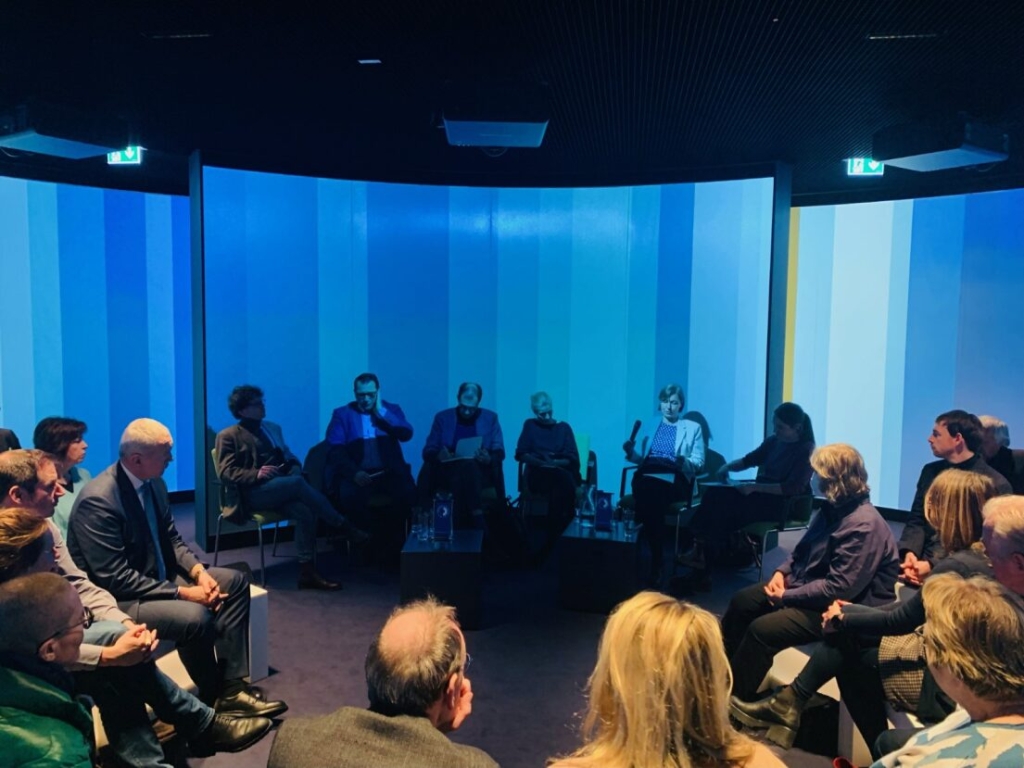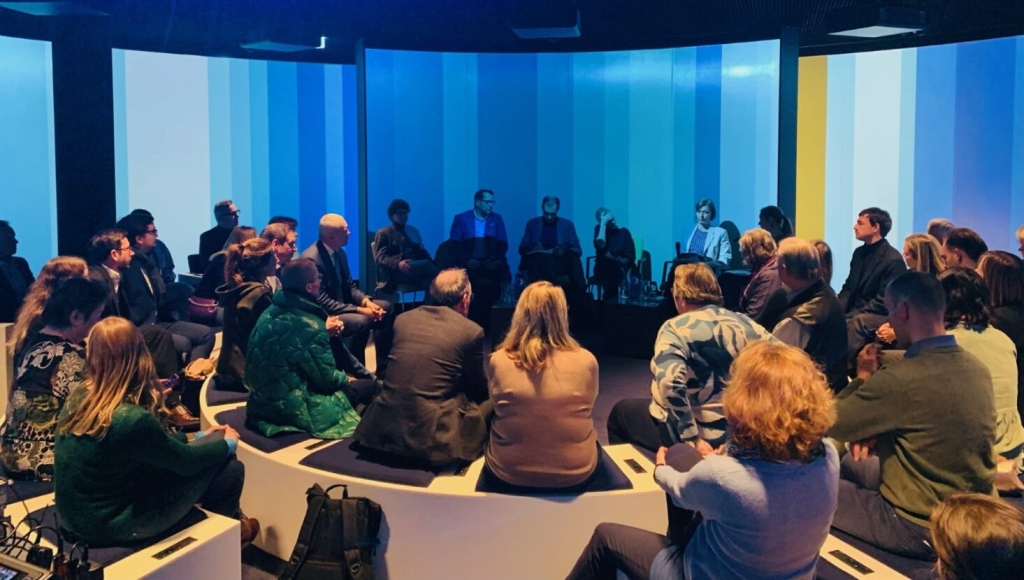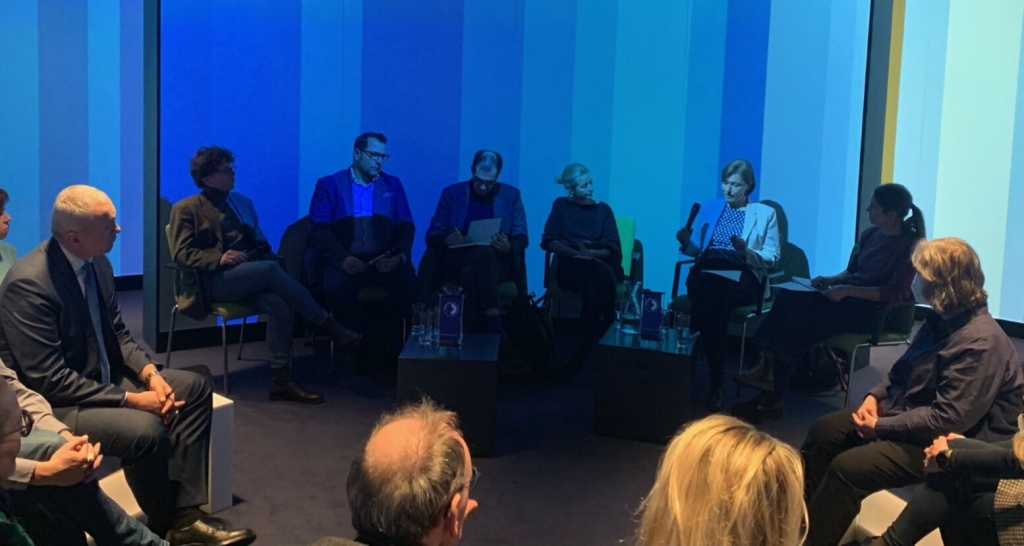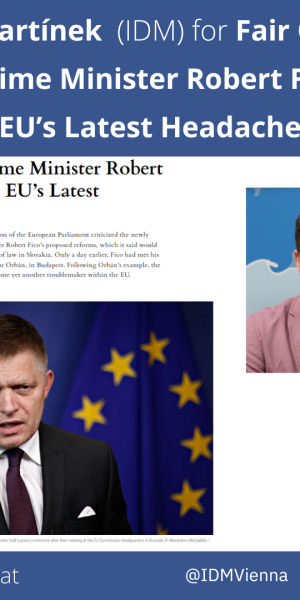Discussion: “Antisemitism – The Old-New Danger Before the European Parliament Elections”
The Alumni Club of the University for Continuing Education Krems (UWK), together with the Institute for the Danube Region and Central Europe (IDM), organized a panel discussion on the old-new phenomenon of antisemitism, especially concerning the upcoming European Parliament elections. The participants of the discussion at the House “Experience Europe” in Vienna’s city centre talked about the questions of whether the “old,” racial motivated antisemitism is still present in right-wing, far-right parties, or how new forms of antisemitism can be observed among certain left-wing and Islamist circles, often disguised as “anti-Zionism.” The event was moderated by Lisa Mayr from the Austrian Chamber of Labor.
Karin Bischof, Professor of European Politics and Democracy at UWK, emphasized that Austria, compared to Germany, has hardly or only belatedly confronted its own history under National Socialism: The myth of being Adolf Hitler’s first victim prevented a critical examination of its own history, which is why antisemitic opinions and structures persisted in the long term, not only within the Freedom Party (FPÖ). She stated that the “classic,” right-wing antisemitism as a possible danger should not be underestimated despite the new forms of anti-Jewish sentiment.
Christina Heinzl, Head of the “Platform for Sustainable Development” at UWK, presented, among other things, her interviews and researches on Jewish life in Austria: Jews feel safe in Austria, and there is even a certain renaissance of Jewish associations or cultural life, especially in Vienna. She highlighted that personal, individual contacts where stereotypes about “Jews” do not prevail are crucial in combating any form of antisemitism. Heinzl then quoted an Orthodox Jewish interviewee who stated that anti-Muslim hatred is more pronounced in everyday life in Austria than antisemitism.
Cengiz Günay, Director of the Austrian Institute for International Politics (oiip), emphasized that racism itself must be fought against, i.e. antisemitism is just as racial motivated as anti-Muslim sentiment. While antisemitism attributes a dominant position to “Jews” (see conspiracies about “Jewish world domination”), anti-Muslim xenophobia regards Muslims as inferior.
Nicolas Stockhammer, Head of the “Research-Cluster »Counter-Terrorism, CVE (Countering Violent Extremism) and Intelligence«” at UWK, outlined the backgrounds of far-right, antisemitic terrorism and its differences from Islamist, antisemitic terrorism.
Péter Techet, Research Associate at IDM, discussed how right-wing populist parties in Austria and Central Eastern Europe, historically rooted in antisemitism, have recently declared “Islam” as the main enemy: However, they disguise anti-Muslim sentiment as Philosemitism, which explains their ostentatious support for Israel. Techet stressed that a pro-Israeli turn in some right-wing populist parties, such as in the Netherlands, was already evident in the early 2000s. According to him, this trend has also reached Austria and the Central Eastern European countries. Techet mentioned several examples from Hungary, such as Viktor Orbán’s ability to persuade the traditionally antisemitic Hungarian right to become anti-Muslim, although this does not mean that antisemitic codes, such as those used in hate campaigns against George Soros, the Hungarian-American billionaire of Jewish descent, are not employed.
The debate also addressed “left-wing antisemitism”: When is criticism of the Israeli government still legitimate, and where does antisemitism begin? Günay argued that criticism of Israel is territorially rather than racially motivated. Techet also believed that “left-wing antisemitism” does not reject “Jews” for racist reasons: He argued that “left-wing antisemitism” is an exaggerated form of anti-colonialism, where “Jews” are accused of being agencies of “colonialism” and “imperialism”. Accordingly, a certain leftist hostility towards the entire West can be observed in “left-wing antisemitism,” according to Techet.
The participants agreed that antisemitism as racist hatred of Jews is still present in Western societies and was not only “exported” to Europe with Muslim immigrants. However, they noted that right-wing parties are less openly antisemitic in their public discourse in recent times. Nevertheless, social peace requires the rejection of all forms of racism; therefore, hatred towards Jews jeopardizes social peace just as hatred towards Muslims does.

